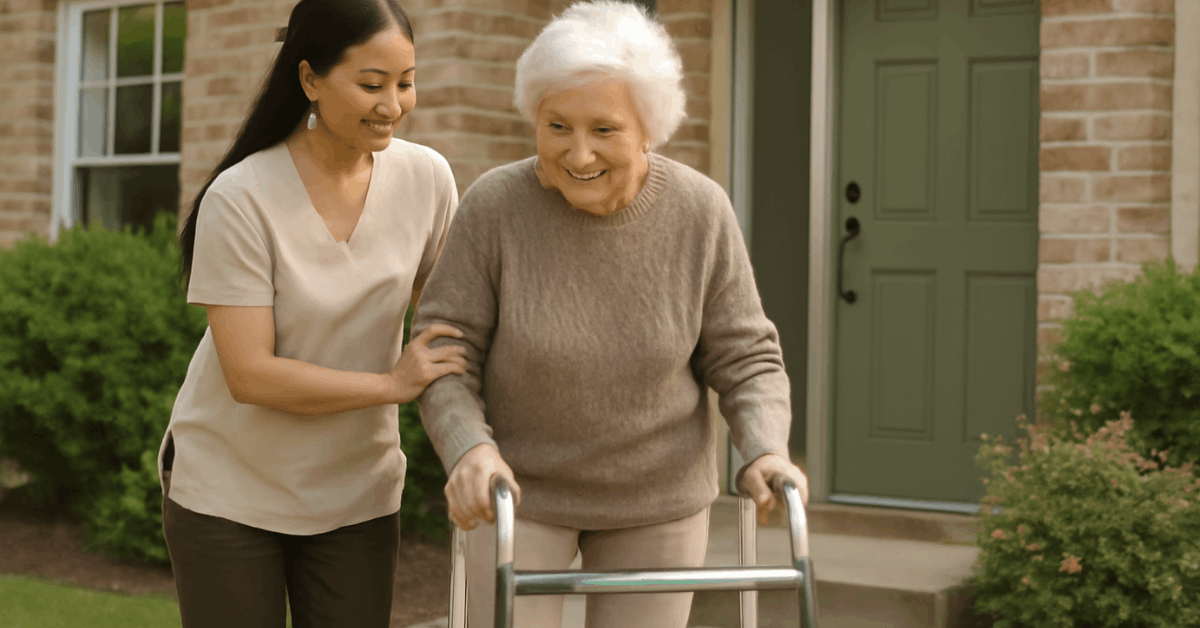The demand for caregivers of the elderly is rising worldwide. Many people are actively searching for elderly caregiver jobs due to increasing needs in this field.
If you’re ready to help older adults with their daily needs, this guide is for you. Here, you’ll discover where to apply and what qualifications you need.
Understanding the Role of an Elderly Caregiver
Elderly caregivers support aging individuals with daily activities and emotional well-being. These roles are essential as populations grow older and families seek dependable care.

Daily Responsibilities and Work Settings
Your duties include helping with bathing, dressing, eating, and mobility. You may also handle medication reminders, errands, and light housekeeping.
Caregivers work in homes, assisted living facilities, or nursing homes. Some roles are live-in, while others follow scheduled shifts.
Each setting comes with different expectations and routines. Choose based on your lifestyle and availability.
Emotional Support and Companionship
Elderly clients often need more than physical help. You also provide companionship and emotional comfort. Talking, listening, and showing kindness build trust.
Loneliness is a common experience among older adults, and caregivers play a crucial role in helping to alleviate it. Being a consistent and caring presence matters. This support improves the client’s mental health.
Challenges and Personal Rewards
The job can be physically and emotionally demanding. You may face clients with memory loss or limited mobility. Some situations require patience and calm problem-solving.
Despite this, many caregivers find it deeply meaningful. Helping someone live with dignity is rewarding. You’ll grow in empathy, responsibility, and compassion.
Required Qualifications and Key Skills
Having the right qualifications improves your chances of getting hired. These skills and credentials demonstrate your seriousness and readiness for the job.
- High school diploma or equivalent: Most caregivers start with basic education. This is the minimum requirement for many jobs.
- On-the-job training: Many employers train you during the first few weeks. This includes learning how to lift clients, hygiene care, and communication.
- CPR and First Aid certification: These are highly valued and sometimes required. They prove you’re ready for emergencies.
- Caregiver training courses: Programs like HHA (Home Health Aide) or CNA (Certified Nursing Assistant) are a big plus. They increase your pay and job options.
- Experience with seniors: Past work with elderly people adds credibility. Families and agencies look for proven reliability.
- Soft skills: Employers want caregivers who are empathetic, patient, and good communicators. Time management and attention to detail are also key.
Average Salary and What Influences It
Knowing your potential earnings can help you plan your career. Wages vary depending on your country, experience, and work arrangement. Here are the average hourly rates:
- United States: $13 to $20
- Canada: CAD $16 to $22
- United Kingdom: £10 to £14
- Australia: AUD $25 to $35
Live-in roles may pay less per hour but often include meals and housing. Special certifications and night shifts can lead to increased pay.
Common Benefits for Caregivers
Besides salary, you might receive other benefits. These often depend on whether you’re working for an agency or directly with a family.
Most caregivers employed by agencies receive basic benefits. Direct hires may not always provide extras.
- Health insurance (if full-time)
- Paid leave and sick days
- Training support or reimbursement
- Retirement contributions
- Free meals or housing (for live-in roles)
Many also find personal satisfaction in helping others, which is its own reward.
Where You Can Apply for Elderly Caregiver Jobs?
You have several options when looking for caregiver jobs. Each has pros and cons depending on your goals and experience.
These include agencies, online platforms, government programs, and direct hires. Some may offer better security, while others pay more.
Caregiver Agencies
Agencies help match you with elderly clients. They handle background checks, payroll, and client matching. Many offer full-time or part-time roles, and some provide training.
Working through an agency can be more stable than going freelance. Examples include Visiting Angels, Home Instead, and Comfort Keepers.
Online Job Platforms
These platforms give you more control over your job search. You can browse listings, create a profile, and contact potential employers directly.
- Care.com: Offers a wide range of caregiver listings in the U.S. and abroad. You can create a profile and set your rate.
- Indeed: Features job postings from agencies and private families. Filter by location, pay, and experience required.
- Facebook caregiving groups: Join local caregiver groups to find job leads. Many families and agencies post opportunities here.
- AuPairWorld: A global platform for caregiving, particularly in family home settings. Useful if you’re open to working abroad.
Government and Nonprofit Programs
Some public or nonprofit agencies connect caregivers with seniors in need. These programs often focus on underserved communities. They may require you to register or complete short training sessions.
You might also be subject to background checks or ongoing evaluations. This is a great option if you’re looking for meaningful work in your community.
Nursing Homes and Senior Living Centers
Applying directly to facilities is another solid path. These institutions usually have HR departments that regularly hire staff. Jobs can include fixed shifts and team-based care.
You may also have access to benefits and formal training. Check local nursing homes or senior care centers in your area.
Private Families or Direct Hires
Some families prefer to hire caregivers without going through agencies. This setup can mean higher pay but fewer legal protections.
You may find listings through bulletin boards, local advertisements, or word of mouth. Always clarify expectations and set clear work agreements. If you go this route, consider using a contract to define your duties and hours.
Tips to Boost Your Hiring Chances
You’ll need more than good intentions to get hired quickly. Employers look for dependable, trained, and trustworthy individuals. Use these tips to stand out:

- Prepare a clear resume with caregiver-related experience
- Get CPR or basic first aid certification
- Collect strong references from past employers or clients
- Complete background checks to show you’re reliable
- Be punctual and professional in interviews
These steps increase trust and make your application more appealing.
Countries That Need Elderly Caregivers Most
Certain countries are actively recruiting caregivers due to aging populations. This can open up opportunities to work abroad. Ensure you meet the visa and training requirements. Language skills may also be necessary.
Here are countries currently in high demand:
- Canada (especially through caregiver immigration programs)
- Japan (with government-sponsored training programs)
- Germany (with strong demand in senior care)
- United Kingdom and USA (due to aging Baby Boomers)
- Look into official immigration websites for the most accurate information.
Conclusion: Start Your Caregiver Journey With Confidence
Elderly caregiving can offer both financial and personal rewards. You can work in various settings and choose one that fits your lifestyle.
With growing demand, now is a good time to enter the field. Focus on training, apply in the right places, and take the first step today.











